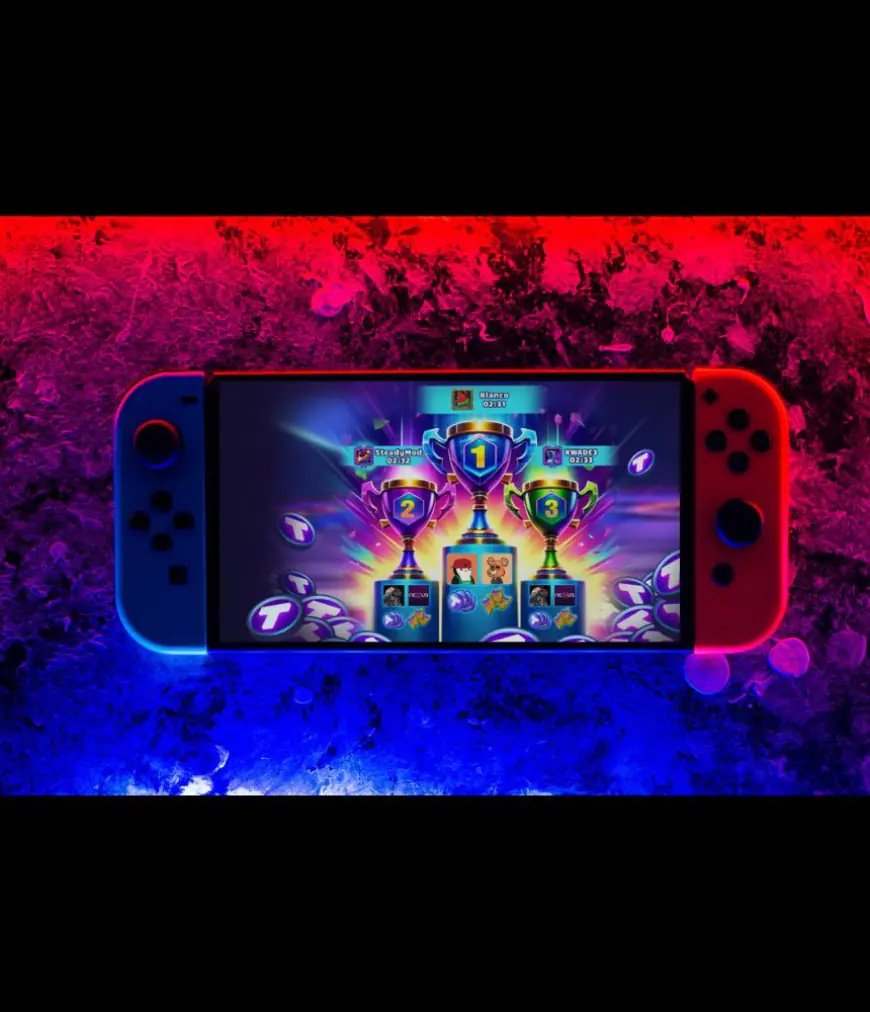The Silent Revolution of Player-owned Assets and How it's Reshaping the Gaming Landscape
Within the rapidly evolving digital entertainment realm, a quiet revolution has been brewing for quite some time now

Within the rapidly evolving digital entertainment realm, a quiet revolution has been brewing for quite some time now — i.e. of Web3 gaming. Powered by the blockchain, this emerging paradigm has not only changed how individuals enjoy their favorite titles but fundamentally altered the relationship between players and how they interact with their in-game assets.
And, while from the outside looking in, the average person might view Web3 gaming as just another passing fad, its impact on the gaming industry has already been profound and far-reaching, with recent market research suggesting that this market — valued at approximately $5.41 billion in 2022 — is set to skyrocket to a valuation of $301.53 billion by 2030.
Moreover, in 2023, the blockchain gaming ecosystem achieved a whopping 1 million daily unique active wallet (UAWs) addresses, a clear indicator of robust user engagement and the sector's rapid expansion.
With this broader context in mind, the transition from Web2 to Web3 gaming represents a major shift in how users perceive item ownership when operating within virtual spaces — thereby facilitating the creation of new economic models and fostering unprecedented levels of player engagement.
Looking beyond tokens and the true value of layer ownership
Today, much of the discourse surrounding Web3 gaming focuses on tokens, gamification rewards, and borderless play. However, these elements — while undeniably revolutionary — only scratch the surface of blockchain's transformative potential. The real revolution lies in the concept of true digital asset ownership, a feature that sets Web3 gaming apart from its predecessors.
To elaborate, as part of most traditional gaming models, players are required to invest their time, effort, and often real money to acquire in-game assets. Even then, they never truly own their digital items.
On the other hand, with Web3 games, players are afforded the ability to have outright ownership of their assets alongside the freedom to sell them in open marketplaces or potentially use them across different games — representing a fundamental shift in their player-game relationships.
Moreover, such an ownership model not only empowers players but also helps establish new economic opportunities within today’s existing gaming ecosystems.
At the front of this revolution stands a gaming platform called Funtico. Built on the principles of decentralization and transparency, the project is designed to empower players, where every achievement, every item acquired, and every moment spent in-game translates into tangible, owned assets.
At the heart of Funtico's holistic setup is its robust marketplace, where players can freely trade their in-game assets. This isn't just a feature; it's a core component of the gaming experience wherein players don't just engage and spend their time for temporary achievements or fleeting in-game currency.
Instead, they can build a portfolio of digital assets that have real-world value and can be leveraged both within and outside of the gaming ecosystem.
However, Funtico's implementation of player-owned assets extends beyond simple collectibles, with the platform also integrating user assets deeply into its gameplay mechanics — creating a rich, interconnected gaming tapestry where owned items can significantly impact a player's journey across various games (present within the Funtico ecosystem).
Lastly, the platform is working towards creating a future where assets acquired in one game can have value or utility in another ecosystem. This is being done to create a truly interconnected gaming universe that offers a level of flexibility and value preservation that is impossible across any traditional gaming model.
A blockchain-driven digital horizon
As the gaming market continues on its explosive growth trajectory, with projections suggesting it will reach $455.27 billion by 2024, blockchain gaming is poised to play a pivotal role in shaping the industry's future. Therefore, as this nascent industry matures and becomes more seamlessly integrated into today’s gaming experiences, it is not unreasonable to expect a fundamental shift in how players value their time and investments within a virtual setting.
Looking ahead, the future of gaming is not just about playing; it's about owning, creating, and shaping digital universes in ways we're only beginning to imagine. And with pioneering platforms like Funtico leading the way, that future seems to closer than anyone could ever imagine. Interesting times ahead, for sure!
Disclaimer: This article is provided for informational purposes only. It is not offered or intended to be used as legal, tax, investment, financial, or other advice.
What's Your Reaction?









































































































